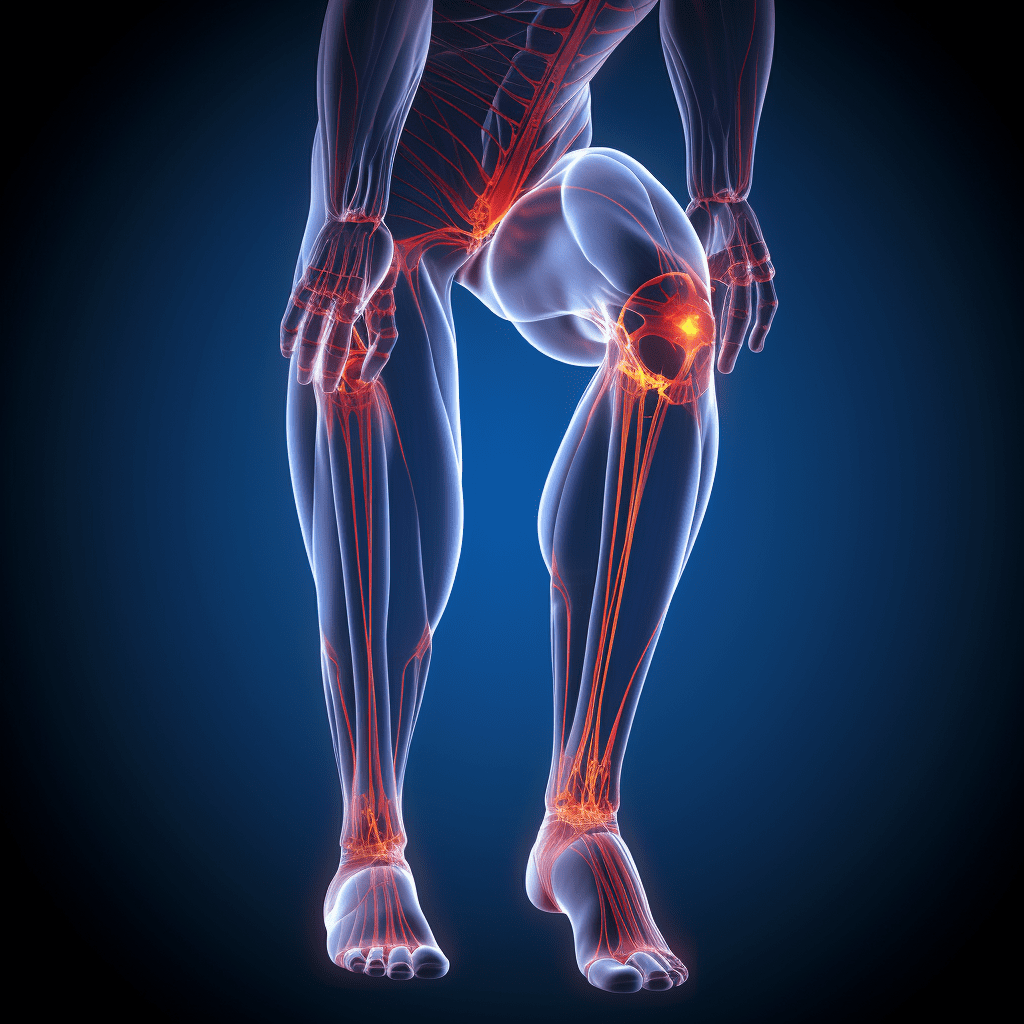
Why Do My Knees Crack When I Squat?
When performing squats, it is not uncommon to experience crackling or popping sounds coming from your knees. While this can be unsettling and even concerning, it is usually harmless and quite common. In this article, we will explore the reasons behind why knees crack when squatting and whether or not it is something to worry about.
Understanding the Anatomy of the Knee
To better understand why knees may crack when squatting, it is important to have a basic understanding of the knee’s anatomy. The knee joint is comprised of several structures, including the femur (thigh bone), tibia (shin bone), ligaments, tendons, cartilage, and synovial fluid. These components work together to allow for proper movement and stability of the knee.
Possible Reasons for Knee Cracking During Squats
There are several reasons why your knees may crack when squatting. Here are some of the most common explanations:
1. Gas Bubbles in the Joint
One possible reason for knee cracking sounds is the presence of gas bubbles in the joint. When you move your knee or put pressure on it during a squat, these gas bubbles can be released, resulting in a cracking sound. This phenomenon is similar to the sound made when you crack your knuckles.
2. Tendons and Ligaments
Another reason for knee cracking may be related to the tendons and ligaments surrounding the knee joint. The tightness or rubbing of these structures against bone during movement can produce popping or cracking sounds. This is often harmless and not indicative of any underlying issues.
3. Cartilage Irregularities
Cartilage plays a vital role in cushioning and protecting the knee joint. However, abnormalities or irregularities in the cartilage can also contribute to knee cracking. These irregularities may include rough or uneven surfaces, causing friction and potentially resulting in cracking sounds.
4. Tracking Issues
Improper tracking of the patella (kneecap) can lead to knee cracking during squats. When the patella does not glide smoothly along its groove, it can create popping or cracking sensations. This is commonly seen in conditions like patellofemoral pain syndrome or chondromalacia patellae.
5. Muscle Imbalances or Weakness
Muscle imbalances or weakness in the lower body can also affect the stability and movement of the knees. When certain muscles are weak or not adequately supporting the knee joint during squats, additional stress can be placed on the joint, resulting in cracking sounds.
6. Arthritis
In some cases, knee cracking during squats may be a sign of arthritis. Arthritis is the inflammation of the joints and can cause cracking, popping, or grinding sensations in the knees. If you experience persistent knee cracking along with pain or swelling, it is recommended to consult with a healthcare professional.
Frequently Asked Questions (FAQ)
Q: Should I be concerned if my knees crack when squatting?
A: In most cases, knee cracking during squats is harmless and not a cause for concern. However, if you experience pain, swelling, or the cracking sounds are accompanied by other symptoms, it is advisable to consult a healthcare professional for a proper evaluation.
Q: Can I prevent knee cracking during squats?
A: While it may not be possible to completely prevent knee cracking during squats, there are some measures you can take to minimize the likelihood. These include warming up properly before exercise, maintaining good form and technique during squats, and incorporating strength and flexibility exercises to support the knees.
Q: Should I continue squatting if my knees crack?
A: If your knees crack without any accompanying pain or discomfort, it is generally safe to continue squatting. However, if you experience pain or worsening symptoms, it is best to modify your exercises or seek guidance from a qualified fitness professional.
Q: Are there any exercises to strengthen the muscles around the knees?
A: Yes, there are several exercises that can help strengthen the muscles around the knees. Some examples include leg presses, lunges, step-ups, and hamstring curls. It is important to perform these exercises with proper form and gradually increase intensity to avoid injury.
Q: When should I seek medical help for knee cracking during squats?
A: You should seek medical help if you experience persistent pain, swelling, instability, or if your knee cracking is accompanied by other concerning symptoms. A healthcare professional can evaluate your condition, provide a diagnosis, and recommend appropriate treatment options.
Q: Can cracking sounds in the knees lead to long-term damage?
A: Generally, knee cracking sounds alone do not indicate long-term damage. However, if cracking is associated with pain, swelling, or instability, it is important to seek medical attention to prevent potential long-term damage or complications.
In conclusion, knee cracking when squatting is often harmless and can be attributed to factors such as gas bubbles in the joint, tendon and ligament movements, cartilage irregularities, tracking issues, muscle imbalances, or arthritis. If you are concerned about knee cracking or experiencing pain or discomfort, it is best to consult with a healthcare professional for a proper evaluation and guidance.


